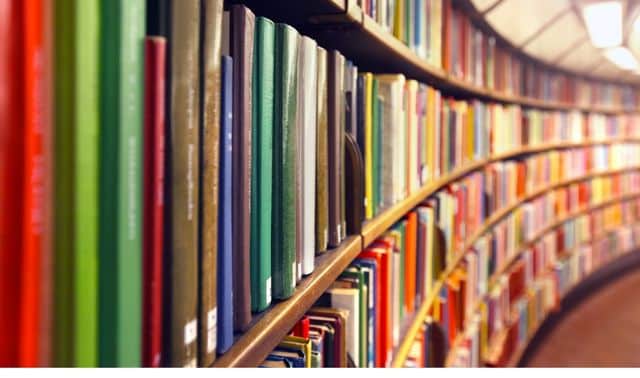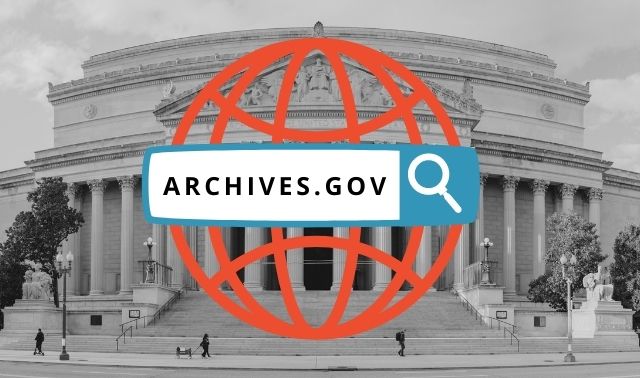Sign up for the Family Tree Newsletter! Plus, you’ll receive our 10 Essential Genealogy Research Forms PDF as a special thank you.
Get Your Free Genealogy Forms
"*" indicates required fields

In the day of online repositories, it’s tempting to skip the library research, but when we do, we’re selling our ancestors — and our research — short. Libraries are vital resources for family history researchers, and contain a lot of valuable information not available online, or in private collections.
Local libraries often provide everything from online access (including subscriptions to Ancestry.com and other online databases) to areas chock full of local history resources. Many public libraries now have dedicated genealogy or local history collections, making them an essential destination for every roots researcher. There you’ll find not only books, but also rare manuscripts, genealogical journals and census records all full of valuable information you won’t find online. And, when going to the library, researchers can take advantage of access to librarians with years of training in research methods and various subjects.
But which other public libraries should you try hardest to work into your travel plans? To find out, we evaluated libraries across the country and weighed factors such as collection size, census records, special collections, accessibility, geographic coverage and services.
Here are the top libraries for genealogy research in the United States:
- Allen County Public Library
- FamilySearch Library
- Mid-Continent Public Library
- Clayton Library
- Birmingham Public Library
- Denver Public Library
- American Ancestors’ Brim-DeForest Library
- Detroit Public Library
- Library of Congress
- Dallas Public Library
- Los Angeles Public Library
- National DAR Library
- The New York Public Library (NYPL)
- Cincinnati & Hamilton County Public Library
Allen County Public Library
The Allen County Public Library’s genealogy center has garnered a national reputation and attracts more than 100,000 researchers from across the country each year. This Fort Wayne, Ind., library’s claim to fame is the Periodical Source Index, which catalogs thousands of genealogical and historical periodicals published since 1800. Staff have collected more than 10,000 titles. You can access PERSI at the library or by searching Findmypast.com.
FamilySearch Library
The FamilySearch Library, the Church of Jesus Christ of Latter-day Saints’ research facility in Salt Lake City, is the largest genealogical library in the world, with more than 4,000 branch FamilySearch Centers in 88 countries.
It has a huge collection of primary sources, including US federal and state census records and indexes, passenger lists for most US ports and some foreign ports, naturalization records, county records, foreign civil registration records, 87,000 family histories plus thousands of maps and gazetteers. See this web page to locate an FamilySearch Center near you.
Mid-Continent Public Library
The Mid-Continent Public Library’s Midwest Genealogy Center in Independence, Mo., accommodates the library’s 102,000 family history books, 100,000 local history items, 565,000 rolls of microfilm and microfiche, and 7,000 maps.
It earns high marks for its complete US census collection, many immigration and naturalization records, manuscripts pertaining to the American slave trade and the antebellum South, and focus on the Southeast, Mid-Atlantic, Midwest and Plains states.
Family History Research Center at Clayton Library
A branch of the Houston Public Library, the Family History Research Center at Clayton Library Campus keeps its entire collection in open stacks. It has the complete US census as well as the General Register Office Vital Records Indexes for 1837 to 1930 for England and Wales. A variety of materials pertain to Mexico and the Gulf Coast region, including immigration records for Southern ports.
Birmingham Public Library
The Southern History Department at the Birmingham Public Library (Ala.) is a boon to genealogists researching Southern ancestors, especially those in the city of Birmingham, Jefferson County and the state of Alabama. Vital records, US Census of Population schedules, passenger lists and city directories are just a few of the record types available. Other resources include the Caribbean Collection, the BPL Cartography Collection, and the early Americana publications in the Rare Book Room.
Denver Public Library
The Denver Public Library (DPL) is a great destination for not only researching Coloradan ancestors, but Western history as well. The library offers many interesting resources for learning about Denver building and neighborhood history (check out the Sanborn maps!). The DPL is also home to the Blair-Caldwell African American Research Library.
American Ancestors’ Brim-DeForest Library
Specializing in New England research, this national center for family history based in Boston (formerly known as the New England Historic Genealogical Society) includes the Brim-DeForest Library with its impressive manuscript collection dating back to the 13th century. Eight floors hold unpublished genealogies, Bible records, family associations’ papers, diaries, journals, photographs, cemetery records and other rarities.
The resources aren’t strictly New England-focused: It also has extensive Canadian, Irish and British collections, featuring censuses and census substitutes, maps, parish registers, local histories, historical newspapers and journals, and Canadian border-crossing records.
Detroit Public Library
The Detroit Public Library’s Biography and Genealogy department offers census records (both federal and state), vital records, city directories, yearbooks, catholic church records and more.
Library of Congress
The world’s largest library in Washington, DC, holds more than 50,000 genealogies, 100,000 local histories, 5 million maps, and extensive collections of city directories and newspapers. Its North American, British Isles and German collections are especially strong.
Be sure to check out the online American Memory collections and guides to the library’s genealogy collections.
Dallas Public Library
Visit the Lloyd DeWitt Bockstruck Genealogy Collection at the Dallas Public Library to explore “one of the largest and most comprehensive collections for family history research in the Southwest.” The Genealogy & History Division has collected over 3,000 files of family research. Visit the library’s index of surnames to see if the library has a local vertical file on a surname you are researching.
Los Angeles Public Library
The Los Angeles Public Library’s (LAPL) Genealogy Collection boasts over 10,000 genealogies, as well as one of the largest map collections in the country. Don’t forget to also check out the LAPL’s newspaper collection, as well as their collection of of Sanborn Fire Insurance Atlases.
National DAR Library
This library of the National Society Daughters of the American Revolution (DAR) in Washington, DC, was founded as a collection of genealogical and historical publications used to verify application papers for society membership. It now houses those applications and supporting files plus biographies, genealogies, cemetery records, Bible records, church records, city directories, periodicals and manuscripts—making it an especially great resource for tracing your ancestry to the Revolutionary War.
The New York Public Library (NYPL)
If your ancestors spent time in New York City, as so many immigrants did, the public library could hold genealogical clues. It offers “unique, one-of-a-kind manuscript volumes and privately published rarities,” particularly those pertaining to old New York families, says librarian Ruth Carr.
Irma and Paul Milstein Division of United States History, Local History and Genealogy is the heart of the NYPL’s resources. While you’re there, check out the extensive photo and map holdings. Another popular resource is the Emigrant Savings Bank Records collection of Irish immigrants’ personal and family information. Outside of visiting in person, the website offers research guides, digital photo collections and online events.
Cincinnati & Hamilton County Public Library
Patricia Van Skaik, former director of Cincinnati & Hamilton County (Ohio) Public Library’s Genealogy and Local History Department, says the department’s biggest strength is its scope: “The collection covers all 50 states and some foreign countries with a wide range of record types.”
That includes microfilm of all available US censuses for 1790 through 1930, one of the nation’s largest collections of African American materials, many Civil War military records and histories, passenger lists and indexes for most ports, an impressive map collection, and city directories from 1,500 cities.
Related Reads
A version of this article appeared in the October 2002 issue of Family Tree Magazine. Last updated: January 2025






